ELENA MOŞUC sings Adriana Lecouvreur in Liège: an encounter with an astonishing soprano with a particularly wide repertoire…
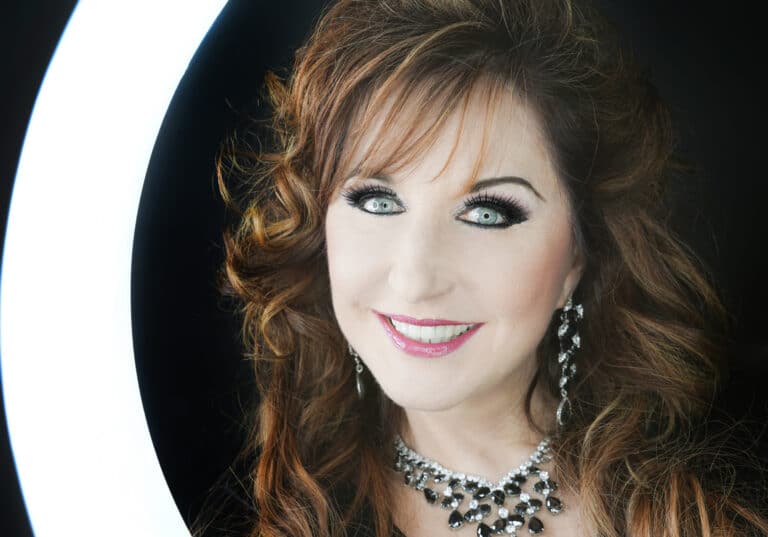
If high-pitched and virtuoso roles have ensured her fame, Elena Moșuc has always included some more lyrical or dramatic ones in her repertoire. This will be the case in a few days in Liège, where the Romanian soprano will perform the title role of Adriana Lecouvreur. This is an opportunity for Première Loge to take stock of her career, her projects, her desires and her dreams!
Stéphane LELIÈVRE : Elena Mosuc, although you are known above all for your mastery of high-pitched, virtuoso roles, you are about to sing Adriana Lecouvreur at the Opéra Royal de Wallonie, and you are also announced, in January 2025, as Desdemona in Verdi’s Otello at the Teatro Massimo Bellini in Catania (a role you already sang in 2017 in Tokyo, I believe). Two very lyrical roles, with some dramatic peaks: does this correspond to an evolution of your voice?
E.M. : In Catania It will be the first time performing Desdemona on stage, because in Tokyo was a semi-staged version with the Tokyo Philharmonic. My voice has grown in these years, never loosing my virtuoso skills and high notes, but naturally conquering and developing a greater consistency in the middle-low register, that now allows me to add roles like Adriana without any risks. My voice has never been pure coloratura, I always had a roundness in my voice and it wasn’t strange for me even alternating extremely different roles as it happened few years ago, when in less than 24 hours I sang the pyrotechnical role of Zerbinetta in Paris and the iconic, statuary role of Norma in Bucharest. I think that every role I added through the years has been important to grow as an artist and to arrive to can sing more lyrical role easily and to return safely to sing lighter roles no feeling the stress. I recently celebrated thirty years of career so I think that with all the experience I achieved I can face these roles as Adriana or Desdemona (which is easier as I’m already familiar with Verdi’s language) with artistic and human maturity.
S.L. : Despite this, you recently sang Elisabetta in Roberto Devereux in Zurich, and bel canto is considered to be one of your specialities: do you want to continue singing bel canto, even if your career should also lead you to more to more lyrical roles? After all, another great bel canto singer, Joan Sutherland, also had Adriana Lecouvreur in her repertoire!
E. M. : Elisabetta is more dramatic than Adriana, the role is written for a soprano drammatico di agilità, a voice type very specific, with skills in the use of coloratura for a dramatic effect. When you say “Belcanto” historically you mean the repertoire that goes from Rossini (that has his own path) to Donizetti, Bellini and maybe the Early Verdi, but vocally I’m agree with what Renata Scotto and even before Maria Callas said:
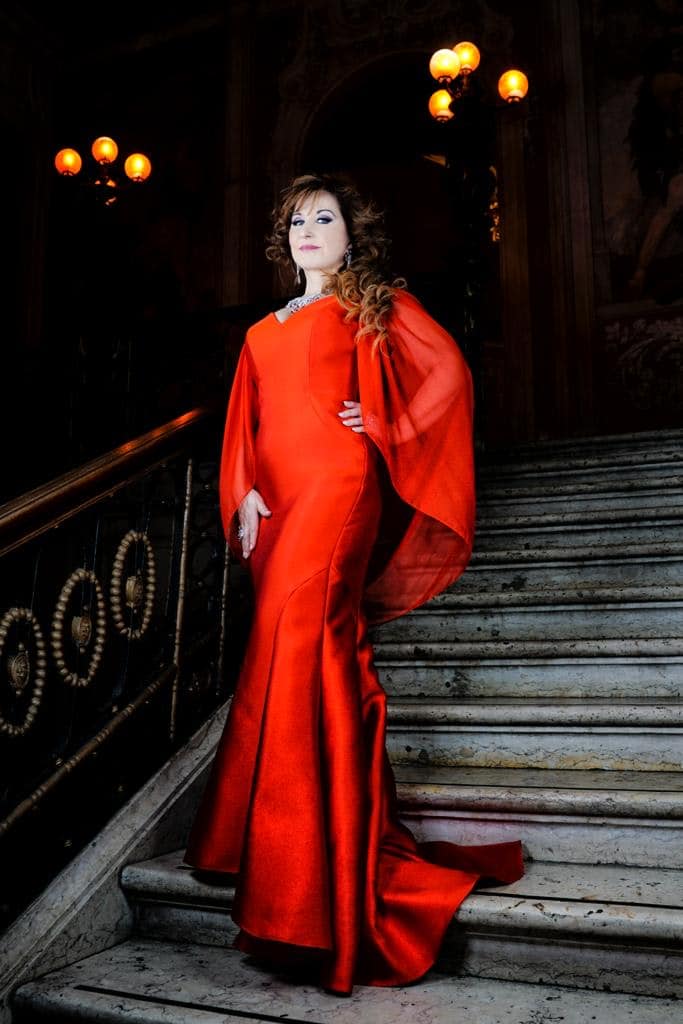
©️ Paul César
everything is Belcanto and when you can sing this repertoire you can sing everything. For Adriana you must have the same technique that you use for Devereux, only the “language”, the style, is different. And don’t forget that I already sang roles such as Mimì in La Bohème and Magda in La Rondine that are really close to Adriana, even though Cilea has a very particular style. About the future I absolutely want to continue my exploration of the Belcanto, and I have some roles in my mind such as the title-role of Elisabetta al Castello di Kenilworth by Donizetti or Imogene in Bellini’s Il Pirata. But also I wish very much now to sing Manon after working and speaking with the great stage director Arnaud Bernard with whom I worked very, very good for Adriana Lecouvreur. I always wished to sing Manon, but I never got an invitation. Maybe now will come, exactly like Lakmé in 2019, a new production in Muscat, directed by David Livermore?…
S.L. : Coming back to Adriana Lecouvreur, what appeals to you about this character? How can this character of an 18th century tragedienne still appeal to today’s audience?
E.M. : I think that a character as Adriana has no time. She is an artist with all the fragilities us artists we can have, she is powerful, she fights for her love, for her beliefs. She hasn’t a crown, but she is a Queen, she is the icon of what an artist is and has to be, expressing her intimate world through her art and realizing the dreams of every artist, dying almost on stage. She is authentic and I think that her sincere, genuine soul can move today and tomorrow, for the eternity!
S.L. : Vocally, what are the difficulties of the role?
E.M. : The third act, with Phaedra’s monologue, is the topic moment in the opera, which presents the challenge of changing the vocal emission. The arias require the right technique, breath control, perfect use of legato, equality of timbre and softness in all registers, characteristics that must reflect the genuine and sincere personality of the character. You must play with all possible colours, with dynamics, with “messe di voce”, all the skills that are part of the belcanto, obviously taking into Cilea’s specific musical style. And its need very much concentration of the whole words…it’s a continuous conversation ! (laughing)
S.L. : The role has been marked by immense singers of the 20th century. Among others: Magda Olivero, Renata Tebaldi, Raina Kabaivanska, Montserrat Caballé, Mirella Freni,… Is it intimidating to succeed them? Is there one in particular that you admire?
E.M. : For sure I have a huge admiration for every artists you mentioned as they’re all incomparable with their characteristics and personalities. In these months (as I do for all my characters) I’ve listened many Adriana’s recordings and all these singers showed me some interesting aspects that I tried to make my own. I think that Magda Olivero is a reference for the Fedra Monologue. I would like to add to this list of singers Marcella Pobbe as it’s possible to admire a cinematic version of the opera with her that is really really beautiful and Virginia Zeani, who recently left us and to whom I was personally connected. I had the possibility to meet her and she became almost a mentor to me and for sure she is a model of what an artist has to be.
https://www.youtube.com/watch?v=cVpvVGxj7u4
Marcella Pobbe – Adriana Lecouvreur – « Io son l’umile ancella »
Magda Oliveiro – Adriana Lecouvreur – « Io son l’umile ancella » (Amsterdam, 1965)
Adriana being herself an artist brings us to reflect about our lives, our duties towards art and the audience, and also about our dichotomous life, divided between our universe on stage and our universe behind the curtain, in our private lives and how these two hemispheres influence each other.
S.L. : You just mentioned Marcella Pobbe, Virginia Zeani… Last year you participated in a tribute to Maria Callas in Germany. Is it important for you to keep alive the memory of the great singers who came before you? Are they a source of inspiration for you?
E.M. : I love to sing in Alte Oper Frankfurt which has wonderful acoustics and I didn’t want to miss the invitation made to me by Opera Classica Europa to participate with arias from the repertoire of the legendary Maria Callas whom I have always admired for her extraordinary qualities as an absolute soprano. I performed emblematic arias from Callas repertoire: Norma (« Casta Diva » with cabaletta), Tosca (« Vissi d’arte« , conducted by my husband Christoph Hebeisen), the final aria from La Sonnambula, then duets from Norma, Rigoletto. Yes, I believe that we must keep alive the memory of all the soloists who raised the art of opera to the heights of the golden age, to always draw inspiration from their art and carry it forward, continuing its true path. Opera must not die or be damaged. We always must be inspired, perfect ourselves and remain faithful to the creative genius as Adriana Lecouvreur says: » Io son l’umile ancella del genio creator « (« I am the humble instrument of the creative genius »). The soloists of the golden age had the best pure Italian singing school and it must remain a point of reference for us today in terms of technique and interpretation, of course through the prism of individual personality.
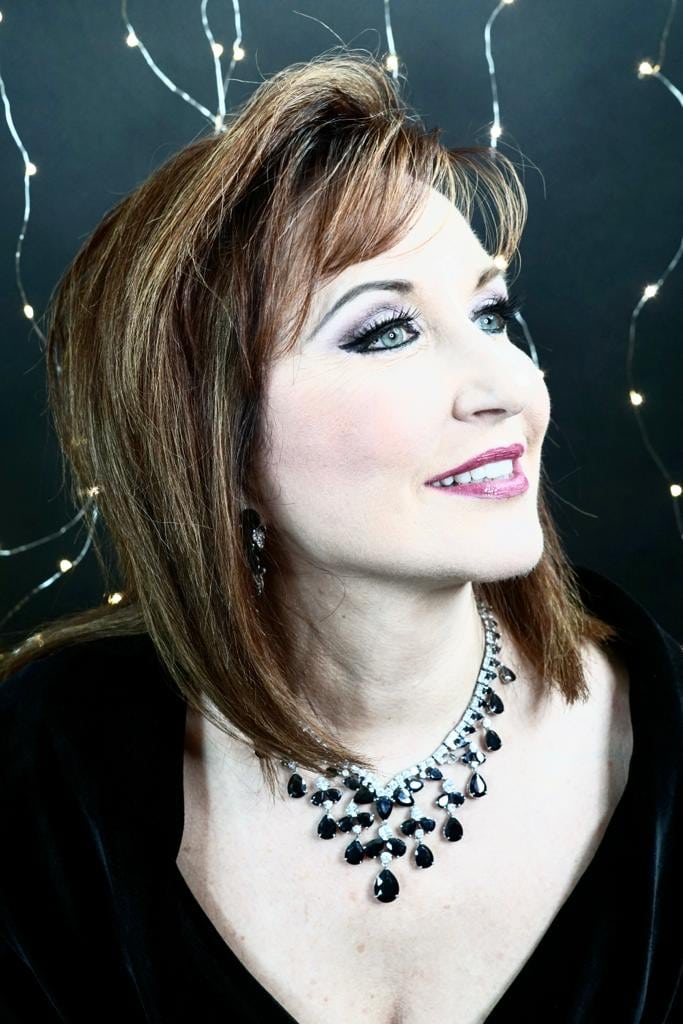
©️ Paul César
S.L. : When you were very young, I believe you taught for a few years in a primary school. Have you kept this taste for teaching and transmission? Do you ever give courses or master classes?
E.M. : I was lucky enough to be a student at one of the best high schools in my town and even in Romania. The pedagogical high school has prepared many series of extraordinary learners, thanks to very demanding teachers who always demanded the maximum from us.So, based on a very good pedagogical training, I think that I can be now a good mentor for young students who want to learn from those who have sung on big stages and with great success, as in my case and having a vocal longevity to be appreciated, remaining in intact vocal condition.
So I did quite a few masterclasses starting in Japan (honestly I was nervous at the beginning because it is a big responsibility), I continued with private masterclasses, but also organized by Universities like the one in Basel ( Switzerland) or in Romania at the Romanian Opera in Iasi, my hometown or organized by the Museum „George Enescu“ in Tescani, Romania. In August this year I will have a masterclass on the island of Mainau in Germany for students from Shanghai who come especially to work with me. I like to work with students who sincerely want to improve their skills, that they are open, receptive, focused and hardworkers in order to make progress as quickly as possible. And I really enjoy working with those who are persistent and I love when they get it right.
S.L. : You have some French operas in your repertoire: Les Contes d’Hoffmann, Lakmé, Roméo et Juliette, Faust,… Several sopranos of Romanian origin, such as Angela Gheorghiu or Ileana Cotrubas, have sung in very pure French. Is it easy for you to sing in our language?
E. M. : I have performed on stage all the titles you mentioned except for Roméo et Juliette (I learn the whole opera and also I have sung for sure the arias in concerts and I have recorded it). I debuted Lakmé few years ago, in 2019, at the Royal Opera House Muscat (Oman) in a beautiful production by Davide Livermore and right after Bolena in Karlsruhe and only some months before my debut as Giselda in Lombardi. It was quite crazy but I love challenges and I’m really conscious about my voice. Singing in French I love, is wonderful as it’s a really musical language and you can use also its idiomatic sounds to sustain the emission. It’s a language that allows me to use colors as in the Belcanto, but with a different style and approach. I love very much to sing chançons by Fauré, Debussy, Chausson, my favorites composers for my recitals. In May I will have a recital in Athenaeum Bucharest and I will sing these in the first part and in the second part Arias from the Donizetti Queens “tetralogy”. I also recorded these composers on my CD Notre amour which is now included in a Sony classical 3 CDs box released in 2015.
https://www.youtube.com/watch?v=RMKEBDCZAyc
Lakmé, air des Clochettes, par Elena Moșuc
S.L. : Are there any other French roles that might interest you? You mentioned Manon… Esclarmonde? Ophelia in Hamlet?
E.M. : I would love to sing Manon (also the Puccini’s one) because I find the character so interesting in her psychological development. Esclarmonde would be really a “guilty pleasure”. I don’t think to Ophelia in this moment of my career, but I would like to debut Thaïs, that is such a fascinating role! But now, after working with the great director Arnaud Bernard and talking with him about new roles, we have decided one day (I hope not too late!) to work together on Manon. He thinks I’m ideal for the role, and if there were the right conditions for this project I think it could be great: I dream of singing it under his direction, because I think he’s brilliant! And I love the role, which I think is perfect for my voice.
S.L. : And in the Belcantist repertoire or in the more lyrical repertoire that we mentioned earlier, are there any roles that you have not yet been offered but that could tempt you?
E.M. : About Belcanto the roles that come to my mind, as I said before, are the title role of Donizetti’s Elisabetta al Castello di Kenilworth and Imogene in Bellini’s Il Pirata. I would like to add other Verdi roles such as Odabella in Attila, Lucrezia in I due Foscari, Mina in Aroldo, Lida in La Battaglia di Legnano, Elena in I Vespri Siciliani. I’m dreaming at the moment of Abigaille in Nabucco (I recently gave a look to the score and I think It would suits me) and Lady Macbeth in the 1847 version…but in the future I wouldn’t say not either to Aida. Apart from Belcanto and Verdi I would like to finally debut on stage Magda in Puccini’s La Rondine, which I recorded in Munich and I sang in a concert version in Madrid (broadcasted by RTVE). At the end of the career I would face Tosca, that has always been the dream role for me!
To listen to Elena Moșuc on records :
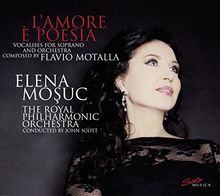
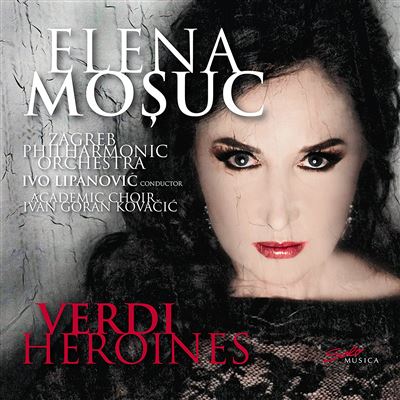
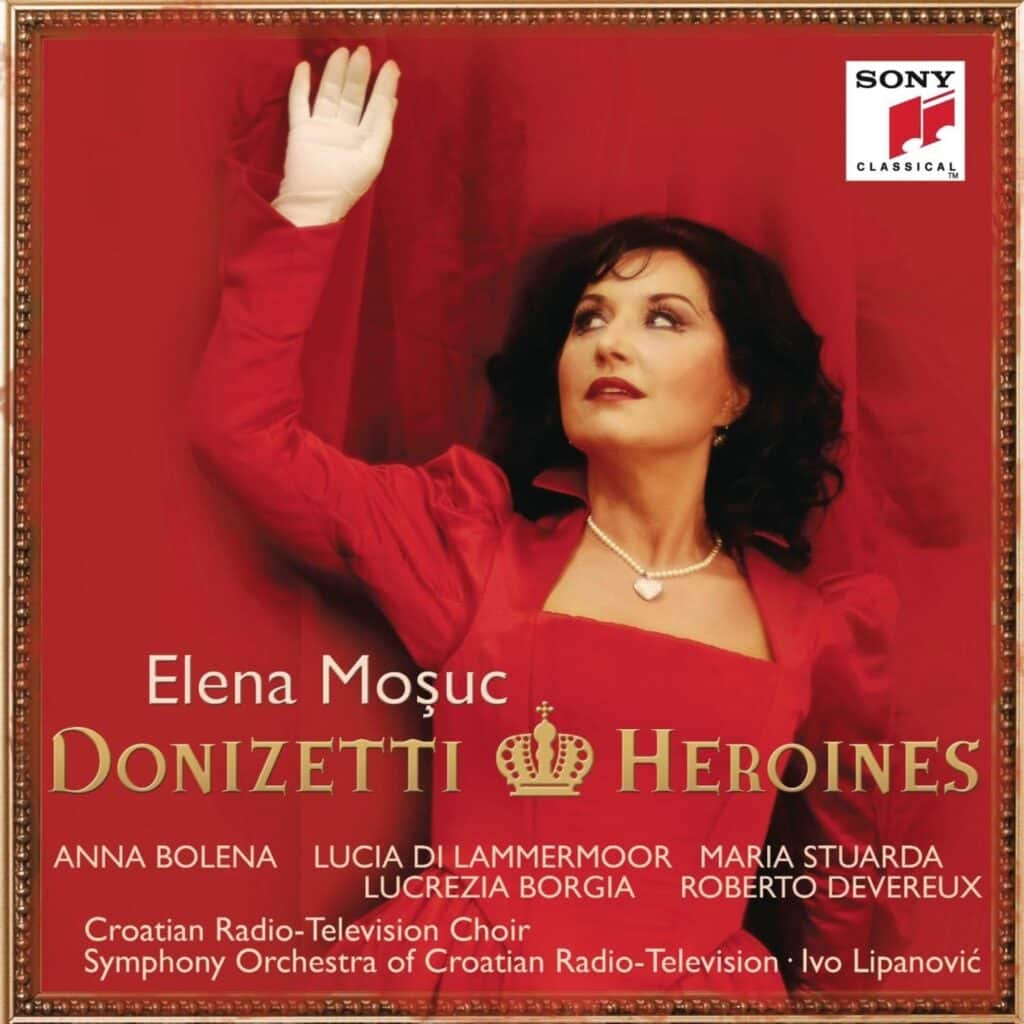
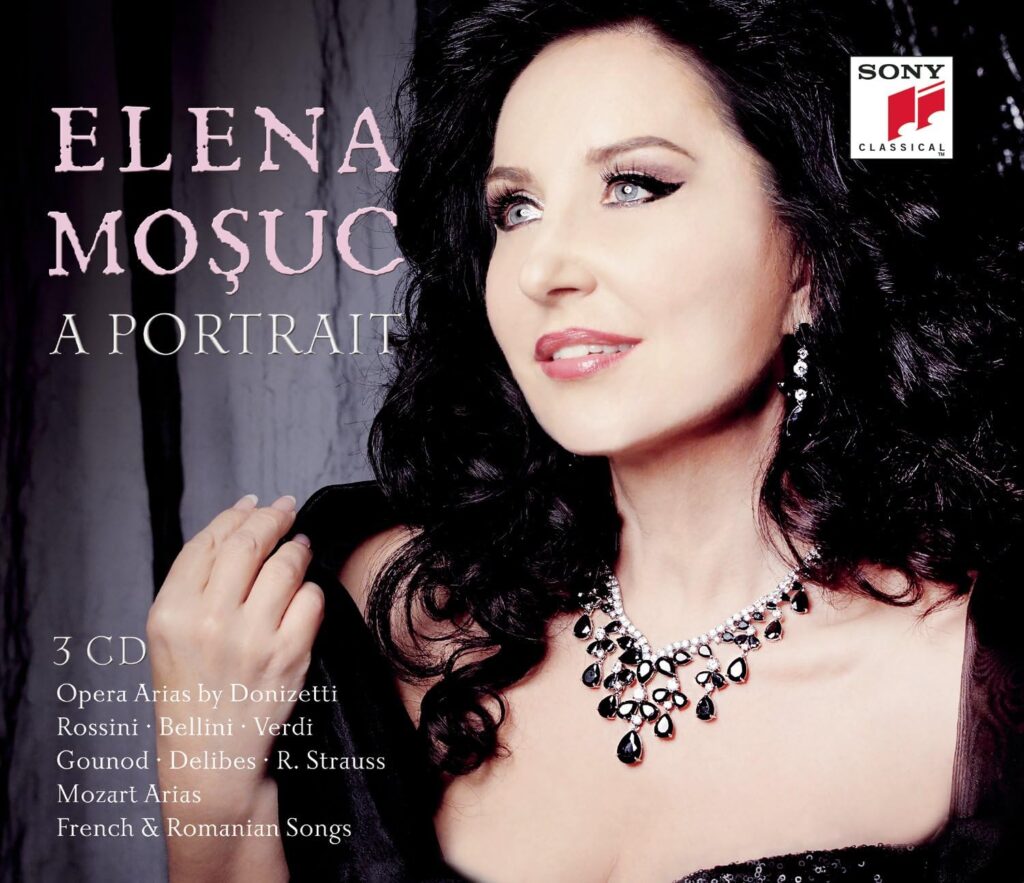
And to find out more, visit Elena Moșuc’s website !
Pour lire cette interview en français, cliquez sur le drapeau !
